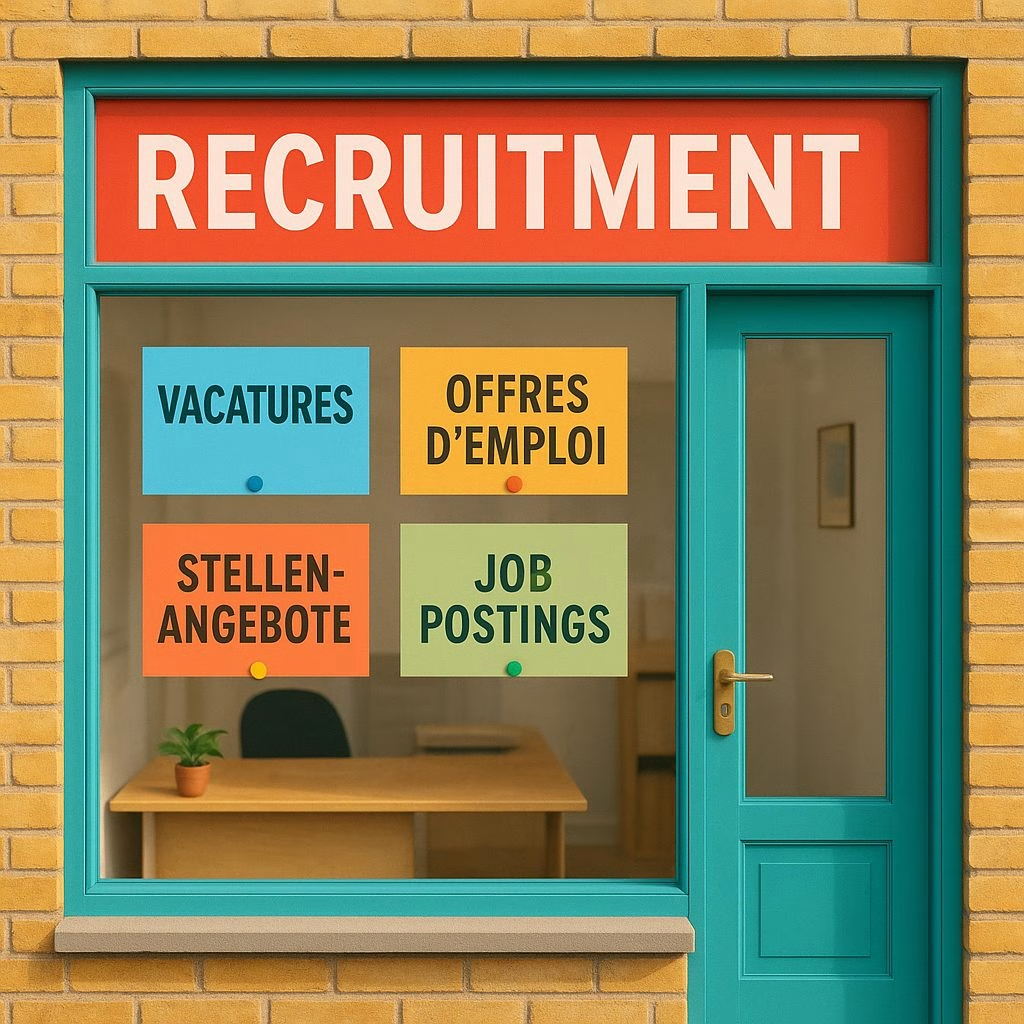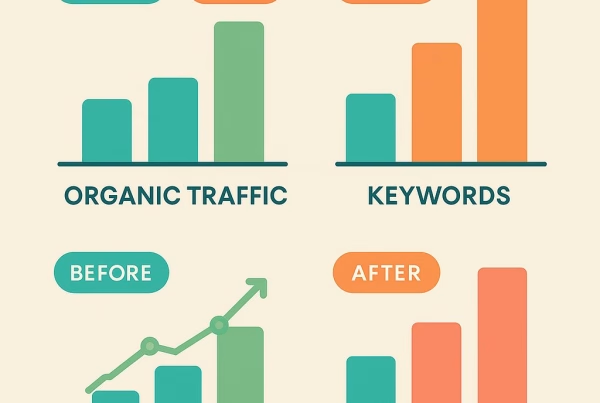In my fifteen years consulting Belgian businesses, I’ve watched countless HR and recruitment agencies struggle with the same fundamental challenge: visibility. With 184,000 job vacancies in Belgium’s second quarter of 2024, 87% of which were for permanent contracts, the competition for top talent has never been fiercer. Yet most recruitment firms I encounter in Brussels, Antwerp, and Ghent are practically invisible online when candidates need them most.
The harsh reality? 79% of job seekers rely on online resources during their job search, but your agency probably isn’t showing up where they’re looking. I remember working with a mid-sized recruitment firm in Leuven three years ago – they had excellent client relationships and a 90% placement rate, but were hemorrhaging potential candidates to competitors who understood SEO basics they’d completely overlooked.
The Belgian recruitment landscape presents unique challenges that generic SEO advice simply can’t address. Between our trilingual market dynamics, regional cultural differences, and the complex interplay between Flemish and Walloon business preferences, Belgian HR agencies need specialized strategies that most international SEO guides completely miss.
Multilingual Keyword Strategy
The biggest mistake I see Belgian recruitment agencies make? Thinking one language version of their website is enough. French, Dutch and German are the official languages of Belgium, with approximately 60% of the population speaking Dutch, nearly 40% speaking French, and only 1% choosing German. But here’s what the statistics don’t tell you – language preference doesn’t always align with geographic location, especially in Brussels and border regions.
When I worked with a tech recruitment firm in Ghent, we discovered something fascinating during keyword research. While their primary market spoke Dutch, 40% of their high-value IT candidates were searching in English. They’d been missing an entire segment of international talent living in Belgium but comfortable searching in their native language.
Your keyword strategy needs to account for:
- Regional search behavior: Antwerp candidates search differently than those in Liège, not just linguistically but in terms they use for job roles
- Industry terminology variations: “Software engineer” might be searched as “développeur logiciel” in Wallonia but “software ontwikkelaar” in Flanders
- Cultural nuances: Flemish job seekers often search more directly (“job Brussels”), while French-speaking candidates use longer, more descriptive queries
Understanding regional search behavior across Belgium and neighboring countries helps you optimize for user intent and increase your content’s visibility. I recommend using tools like SEMrush or Ahrefs with location-specific settings to uncover these linguistic variations.
Technical Implementation

The technical foundation for multilingual SEO in Belgium requires more sophistication than most agencies realize. You could target Belgium using the local languages of each country; i.e. French, Dutch and German for Belgium, but the implementation determines your success.
URL Structure
Keeping the content for each language you support on a separate URL is the key to good SEO for multilingual websites. I’ve seen too many Belgian agencies use automatic translation tools or cookie-based language switching – Google can’t index these properly, and you’ll lose search visibility.
The structure I recommend:
- yoursite.be/nl/ for Dutch content
- yoursite.be/fr/ for French content
- yoursite.be/de/ for German content
- yoursite.be/en/ for English content (don’t overlook international talent)
Hreflang Implementation
This is where many Belgian agencies stumble. Hreflang tags tell search engines which language version to show users, but implementation needs to account for Belgium’s unique situation. You’re not just targeting language – you’re targeting language within a specific geographic context.
For a job posting in Brussels targeting Dutch speakers:
html
<link rel="alternate" hreflang="nl-BE" href="https://yoursite.be/nl/jobs/brussels-marketing-manager" />The “BE” country code matters because Dutch-speaking candidates in Belgium search differently than those in the Netherlands.
Content Localization
Content localization goes far beyond translation – it requires understanding cultural expectations around recruitment in different Belgian regions. In my experience working with agencies across Belgium, I’ve noticed distinct patterns in how different communities approach job searching.
Flemish Region Approach
Flemish candidates typically prefer:
- Direct, efficient communication styles
- Detailed job specifications upfront
- Clear progression paths and compensation ranges
- Company culture information that emphasizes work-life balance
Content examples that work:
- “Software Developer – Brussels: €45-55K + Benefits Package”
- Blog posts about career development in tech
- Company spotlight articles highlighting employee benefits
Walloon Region Preferences
French-speaking candidates often respond better to:
- Relationship-focused messaging
- Stories about company mission and values
- Longer-form content that builds trust
- Emphasis on team collaboration and workplace relationships
Effective content approaches:
- “Rejoignez notre équipe dynamique: Développeur Senior à Liège”
- Case studies featuring employee success stories
- Content about work culture and team achievements
Local SEO Optimization
Belgian recruitment agencies often underestimate local SEO’s importance, but recruitment activity is expected to be particularly strong in sectors like Telecoms (+51%), IT (+49%), and Energy (+43%), creating intense local competition.
Google My Business Optimization
Your GMB profile needs optimization for each office location. I worked with a recruitment firm that had offices in both Brussels and Antwerp but only optimized their Brussels listing. They were missing 30% of potential Antwerp candidates who found competitors instead.
Key elements:
- Complete profiles for each office location
- Regular posting of job opportunities and company updates
- Consistent NAP (Name, Address, Phone) across all online directories
- Local keywords in business description: “recruitment agency Brussels,” “headhunter Antwerp”
Citation Building
Belgian business directories matter more than most international agencies realize. Beyond obvious choices like Gouden Gids, focus on:
- Industry-specific directories (HR-specific Belgian platforms)
- Regional business associations
- Chamber of Commerce listings for each region you serve
Industry-Specific SEO
The Belgian recruitment market has distinct sectors with unique SEO requirements. Talent shortages remain a structural challenge for many Belgian companies, especially in sectors like technology, healthcare, and engineering, creating opportunities for agencies that understand sector-specific search behavior.
Technology Recruitment
Tech talent in Belgium searches differently than other sectors. They’re more likely to:
- Use English search terms even when Dutch or French speakers
- Search for specific technologies rather than general job titles
- Research companies extensively before applying
SEO strategies that work:
- Technical blog content about emerging technologies
- Salary guides for specific tech roles in Belgian market
- Company culture content highlighting innovation and flexibility
Healthcare Recruitment
Healthcare professionals in Belgium have distinct search patterns:
- High emphasis on location (proximity to hospitals/clinics)
- Interest in continuing education opportunities
- Concern about work-life balance and shift patterns
Content approaches:
- Location-specific content: “Nursing jobs near UZ Leuven”
- Professional development articles
- Work-life balance case studies
Competition Analysis
The Belgian recruitment market is fragmented, creating opportunities for agencies that understand competitive gaps. During my analysis of recruitment agencies across Belgium, I’ve identified several patterns successful agencies share.
Most Belgian recruitment agencies fail at:
- Consistent content creation across languages
- Technical SEO implementation
- Local search optimization
- Mobile-first design (crucial as most job seekers browse on mobile)
Top-performing agencies excel at:
- Regular, valuable content creation
- Strong local SEO presence
- Clear value propositions for both clients and candidates
- Seamless multilingual user experience
Measuring Success
SEO success for Belgian recruitment agencies requires tracking metrics that matter to your specific market. Standard SEO metrics don’t tell the complete story when dealing with multilingual markets and diverse regional preferences.
Key Performance Indicators
Primary metrics to track:
- Organic traffic by language version
- Local search visibility for target cities
- Candidate application rates from organic search
- Time spent on site by language preference
- Conversion rates from search to application submission
Secondary metrics:
- Brand awareness searches in different languages
- Geographic distribution of organic traffic
- Industry-specific content engagement
- Mobile vs. desktop behavior by region
Future Considerations
The Belgian recruitment landscape continues evolving, with remote work changing traditional geographic constraints and AI affecting candidate expectations. 65% of recruiters use social media platforms for talent acquisition, but SEO remains crucial for long-term visibility and credibility.
Emerging trends affecting SEO strategy:
- Increased English-language searching by international talent
- Greater emphasis on company culture content
- Growing importance of video content for job descriptions
- Voice search optimization for mobile job seekers
Belgian recruitment agencies that invest in comprehensive SEO strategies now will have significant competitive advantages as the market becomes increasingly digital-first. The agencies I work with that implement these multilingual, culturally-aware SEO approaches consistently see 40-60% increases in qualified candidate applications within six months.
Your success depends on understanding that Belgian SEO isn’t just about language – it’s about cultural context, regional preferences, and technical excellence working together to create visibility when candidates need you most.






